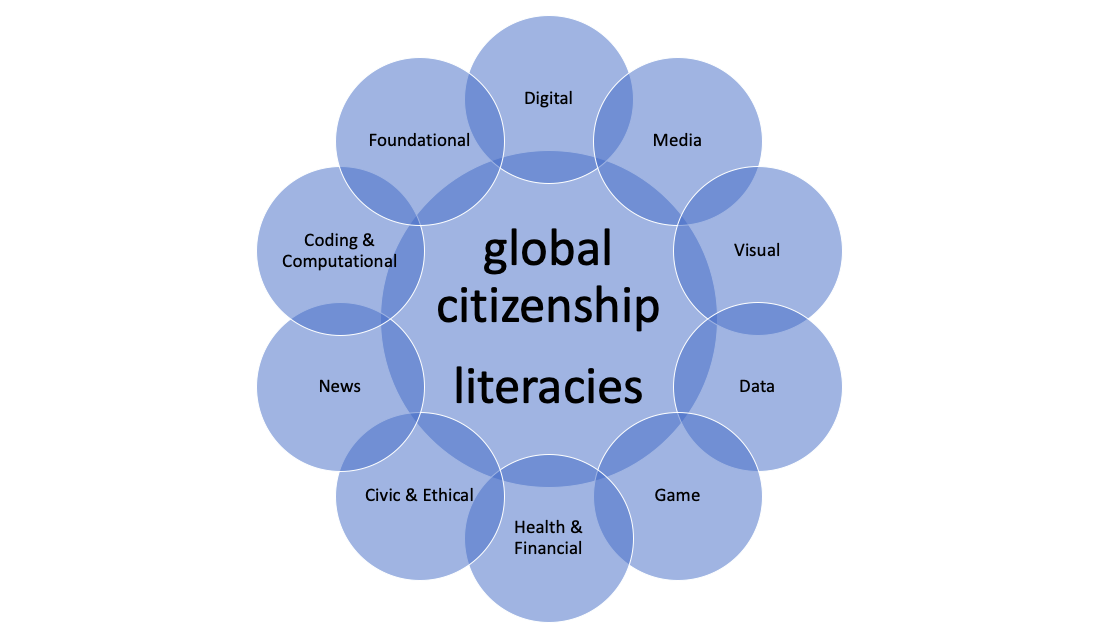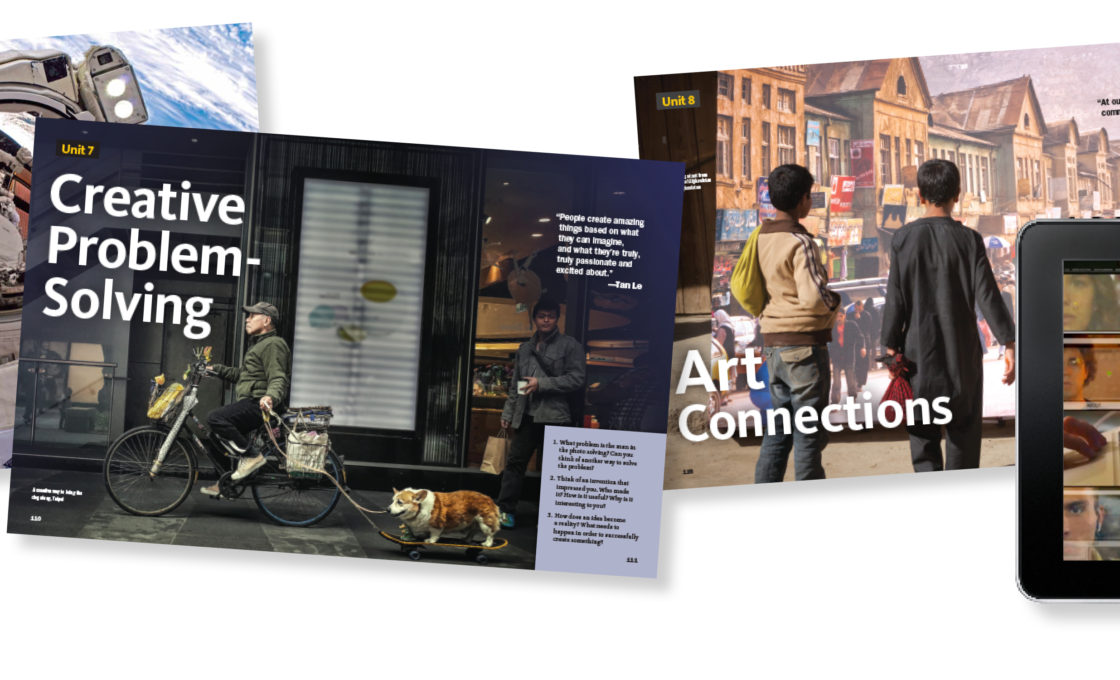Every day our world is becoming more and more open to travelling and exploring. We have no borders, no limits, no anchors. We are becoming global citizens. A global citizen is a buzzing word nowadays. According to Oxfam “a global citizen is someone who is aware of and understands the wider world — and their place it. They take an active role in their community, and work with others to make our planet more equal, fair and sustainable”. This means that today’s society is more sensitive to global problems and is ready to participate in solving them. This leads to applying this knowledge to teaching our teens.
How to have a lesson on this topic?
One way of doing so is by using a thematic approach. Thematic learning (often synonym with thematic instruction) is an instructional method of teaching in which emphasis is given on choosing a specific theme for teaching one or many concepts. Pedagogy of thematic learning is based on its exploration of broad areas in one theme. Thematic instruction seeks to put the cognitive skills such as reading, thinking, memorizing, and writing in the context of a real-life situation under the broad aim to allow creative exploration.
Note! Do not confuse CLIL and thematic learning. CLIL is about teaching another subject in English, while the thematic approach to language learning is various real-life examples and situations in English.
Themes
Surely, these topics will be connected with global citizenship:

- Digital literacy — the knowledge of how to use various digital devices and tools
- Media literacy — the ability to adapt to new communication formats and can choose the most effective mode in any given situation
- Visual literacy — the ability to comprehend and also create various photos, videos, infographics not to let attention span shrink
- Data literacy — the ability to derive meaningful information from data
- Game literacy — the ability to use games to progress in spheres like maths, reading, and science
- Health and Financial literacy — the ability to understand the basic principles of business and finance, and also the ability to obtain information and services, analyse and understand choices connected with health
- Civic and Ethical literacy — the awareness of citizenship duties, being careful with conflicting issues
- News literacy — the ability to differentiate between a fact and a fiction in the news
- Coding and Computational literacy — the ability to dream up a solution to a problem and code it, it is an important problem-solving skill
- Foundational literacy — the ability to read and write including phonemic awareness, the alphabetic principle, phonics, spelling, and fluency
Steps of the lesson according to the thematic approach
- You have to decide on the theme you are going to present to your teens. As we are talking about 21-st century skills, rely on their critical thinking and discuss which they would like to start with.
- Think of whether you need to divide it into subthemes or leave it as it is. For example, if you have chosen health literacy, is it possible to talk about everything it includes at once or should you about something more specific as, say, global food challenge?
- Raise awareness. Let your students understand that it is a problem for our world. Do it using thought-provoking pictures, social posters, videos. Concentrate on their thoughts about this issue and also on what they can do to become an active participant.
- Integrate other aspects of language in your lesson or sequence of lessons – think about vocabulary and grammar that can fit here. The most problematic points as Passive and Conditionals are easily fitted into this approach, the same as Present Simple and Going to.
- Work on productive and receptive skills. Look for articles and videos on the theme. Teach reading and listening for gist and for details. Use authentic materials made by real people to immerse your students in the problem. Teach them to write an opinion essay or role-play a dialogue between two friends explaining the importance of reducing food packages. Let them reflect on their attitude.
Benefits of the lesson
— You raise your students’ awareness of global issues and make them think and understand the importance of changing people’s attitudes toward our world.
— You make your students use their 21-st century skills: collaboration, communication, critical thinking, and creativity.
— You teach your students in a meaningful way and prepare them for real life.
— You engage and motivate your learners to be active learners.
— You take into account multiple intelligences of your students by choosing various themes.
What to use?
For this purpose you can use:
- graded readers from “Read and Discover” series and Footprint Reading Library
- National Geographic books such as Impact
- visit Oxfam website to get some ideas on lessons and resources







 Вероника Аветисян
Вероника Аветисян 
 Маргарита Аветисян
Маргарита Аветисян 


